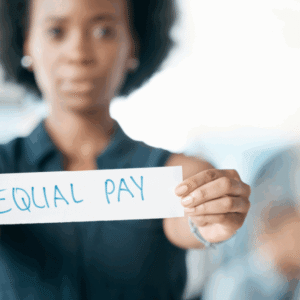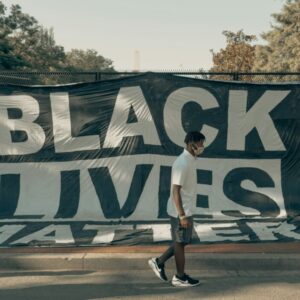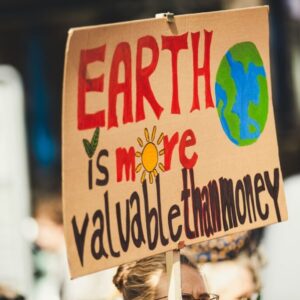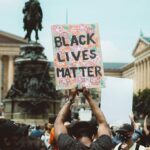
Humans of Nonprofits is a storytelling series that explores how nonprofits shape and support the lives of everyday people. Each story shares an authentic, lived experience, revealing the many ways nonprofits intersect with individuals across all backgrounds, beliefs, and communities. Regardless of politics, religion, gender, or geography, nonprofits are a vital thread in the fabric of daily life.
“We knew what would happen—rape, killing, disappearing. We had seen it before. This time, we knew we had no one to count on but each other.”
Yasir, a Sudanese refugee and global health practitioner, has lived Sudan’s war from nearly every possible vantage point. He has crouched on the floor of his family’s home, praying stray bullets wouldn’t tear through the walls. He has fled the country, returned to rebuild, and then witnessed it collapse again. He has provided aid in fractured communities and worked abroad on US-funded health programs that were recently gutted by politics.
His story is more than a timeline of conflict. It’s a rare, 360-degree portrait of how civilians survive violent collapse, and how the aid system meant to support them often proves both lifeline and illusion.
A Survivor: “We Slept on the Floor Because We Were Being Shot At”
Yasir was in his twenties when Sudan’s revolution erupted in 2019. Crowds filled the capital city Khartoum, demanding an end to three decades of dictatorship. Then came the massacre.
“They attacked the protesters just before Eid,” he recalled in an NPQ interview. “People were killed. Thrown in the Nile. Raped in hospitals. The internet was cut for months. You couldn’t even check if your family was alive.”
On June 3, 2019, Sudanese security forces opened fire on unarmed demonstrators. More than a hundred were killed, many more raped, tortured, or detained. The violence marked the start of weeks of bloodshed, as the military crackdown continued throughout the summer. Yasir and his family slept on the floor each night, keeping low enough to avoid the bullets. It was his first taste of war, but sadly not his last.
A Refugee and Aid Worker: “People Sold Everything Just to Flee”
After the massacre, Yasir’s family escaped to a neighboring country, only to return months later when the democratic transition gave them hope. Yasir found work at an NGO, coordinating aid during floods and food shortages, often working with local hospitals and clinics.
[Sudan’s war] has driven what the UN calls the largest hunger crisis on earth, with over 30 million people needing humanitarian assistance.
But the transition faltered. A coup. The COVID-19 pandemic. And in April 2023, all-out war.
His family was trapped. “I had gone to study abroad by that point, but my family was stuck in Sudan. They kept moving from city to city, always moving, barely able to stay just ahead of the militias,” Yasir explained. “When the fighters came, they killed and assaulted civilians. So, people ran.” Chaos ensued.
A Witness: “We Tried to Help—but It Wasn’t Enough”
Since 2023, Sudan’s war has killed more than 150,000 people and displaced over 14 million. It has driven what the UN calls the largest hunger crisis on earth, with over 30 million people needing humanitarian assistance. Yet only a fraction of those in need receive aid.
“There’s always been shortages of food and medical supplies,” Yasir reflected. “But we managed through community kitchens, volunteers, and diaspora families sending money through informal channels when banks shut down. That’s what kept people alive.”
Both warring factions looted convoys, cut off supply routes, and attacked aid workers. The World Food Programme reported that over $13 million worth of food aid was looted in 2023. At that time, 156 aid organizations operated in Sudan, but that number has since sharply decreased. Today, only a few organizations remain.
“Sometimes people gave their rations to others,” Yasir remembered. He said people lost their lives “because hospitals had no medicine or power.”
Over 70 percent of Sudan’s hospitals have shut down since the start of the war. Strategic drone attacks relentlessly dismantled healthcare infrastructure. Essential medicines like insulin and antibiotics ran out, and surgeries were being performed without anesthesia. Sudan’s immunization rates dropped from over 90 percent to under 50 percent.
“Our health system just collapsed. Mutual survival was all we had left,” Yasir said.
A Provider: “I Knew the Impact of Every Dollar That Got Cut”
Recently, Yasir has been working on US-funded health projects, supporting frontline trauma response efforts and infectious disease control in Sudan.
But on January 20, 2025, a presidential order froze all US foreign aid funding for 90 days, officially canceling 83 percent of US foreign aid contracts by March 10, 2025. By July 1, 2025, USAID—the federal agency established in 1961 by President John F. Kennedy, primarily responsible for administering US foreign aid—was fully dissolved under the Trump administration.
“Who would willingly choose to go back to work in a place where they fear for their jobs and their lives every day?”
“Overnight, my colleagues and I all lost our jobs,” Yasir said. “These were the people who knew the terrain, the language, the politics. Without them, there is no healthcare or aid system.”
Because of years of sanctions, Sudan’s health services had long been propped up through a fragile chain of funding: US contracts to international NGOs, who in turn hired Sudanese consultants and staff. The sudden collapse of foreign aid severed that chain entirely. The few remaining, heavily battered hospitals were left with no supplies, payroll, or network of frontline responders.
“Even if aid resumed, the trust is gone,” Yasir told us. “Who would willingly choose to go back to work in a place where they fear for their jobs and their lives every day?”
“Until the people we claim to serve are the ones defining what help looks like, it isn’t really aid—it’s just another form of control.”
A Country at a Crossroads—and a System in Crisis
Living abroad now, Yasir is weighing his future. But he’s also questioning everything he once believed about humanitarian aid.
“I don’t know if I believe in foreign aid anymore,” he admitted. “It’s clear, some lives matter. Others don’t.”
Part of his disillusionment stems from watching the global foreign aid system shrink while needs only increase. Since 2018, major donors like Germany, France, and Norway have sharply reduced their foreign aid budgets. The UK’s cut resulted in nearly $6 billion less in aid each year.
Against that backdrop, Yasir highlighted the gap between rhetoric and reality: “We use words like ‘resilience’ and ‘safeguarding’ in donor reports. But do the people we support even understand what those terms mean?”
For him, the language has become symbolic of its distance from the people it claims to serve: polished phrases written for reports and funders, rather than practical tools for survival in war zones.
Yasir advocates for a different approach. Instead of short-lived projects that disappear when budgets are cut, he envisions locally designed solutions and genuine feedback loops where communities determine what aid should look like.
“Until the people we claim to serve are the ones defining what help looks like, it isn’t really aid—it’s just another form of control.”
Why It Matters to You
Yasir offered a blunt reminder for those far from Sudan who struggle to see why the country should matter among the many issues vying for limited time and attention: “They didn’t stop taking your taxes,” he said. “They just stopped using them to save lives.”
On August 29, President Trump invoked a budget tactic, not used since 1977, called “pocket recissions” in order to freeze billions of dollars in congressionally approved aid. The move quietly gutted funding for global health, food security, and refugee programs. On paper, the money still exists. In reality, it never leaves Washington.
“Don’t you want to know where your money went, and if it is making a difference?” Yasir asked, throwing his hands up in frustration.
He warns that defunding global health programs isn’t just morally wrong, it’s strategically short-sighted. “You think diseases like HIV or cholera will stay in one country? They won’t. If you don’t stop them early, they’ll reach your borders.”
For Yasir, US-funded aid is more than just humanitarianism, it is a potent form of soft power. “When America helps, people remember. They stand with you in the UN. They resist rival powers alongside you. Abandoning them doesn’t just kill trust—it kills alliances.”
To those who argue that aid should be cut to focus inward, he was candid: “Fine. But don’t fool yourself: Your tax dollars are not being redirected to fix your bridges and schools. The money is still leaving your pocket. It’s just not saving lives or creating US alliances anymore.”
Yasir left readers with a simple request for empathy: “You may never need aid. But someone you love might. And when that day comes, you’ll hope the world hasn’t looked away.”














